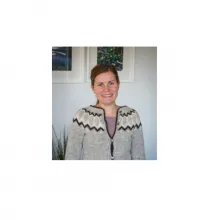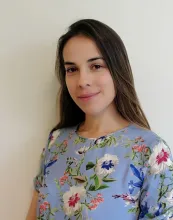The main objective of this project is to create a computational platform that allows for simultaneous estimation of nutrient intake and the carbon footprint of Icelanders based on existing National Nutrition Surveys and other population-based surveys.
The aim is to identify the areas where innovation and research would provide the most benefits for the Icelandic food industry and food security.
This project directly addresses social, cultural- and political factors influencing consumption while also exploring and considering the social knowledge and innovation that consumers are already in possession of.
The vision of the project is to bring together a group of representatives from key infrastructures that underpin research into food-related societal challenges facing Iceland, as well as associations of sustainably minded consumers.
This project is a multi-disciplinary collaboration between academics from ethnology and environmental economics, agriculture, engineering, and natural sciences; also involving leading international experts on environmental sustainability. Proper dissemination of results of the project is ensured by inclusion of key domestic stakeholders.
- To create a computational platform that allows for simultaneous estimation of nutrient intake and the carbon footprint of Icelanders based on existing National Nutrition Surveys and other population-based surveys.
- To prioritize where the carbon footprint of important domestically produced foods should be further assessed through complete Life Cycle Assessment.
- To estimate the expected societal and socio-economic impact associated with shifting consumption and domestic production in a direction of more sustainable diets, and to combine this with a bottom-up ethnographic understanding of social innovation among current groups of “sustainable eaters”.
- To identify areas where innovation and research would provide the most benefits for the Icelandic food industry for achieving low carbon footprint and food security.
- Create a computation platform to assess simultaneously the carbon footprint and nutrient content of different dietary regimes; both for fixed dietary patterns and on an individual level from population-based surveys.
- Generation of robust data on the carbon footprint on key selected domestically produced foods.
- Assessment on the societal and socio-economic impact resulting from shifting dietary habits in a more sustainable direction.
- A creation of a venue to exchange information on food sustainability among key stakeholders in Iceland, including regulatory authorities, academia, consumers, and industry.
- Development of cross disciplinary courses and education within the field of sustainability and health sciences that will strengthen multidisciplinary collaboration among both Icelandic and international academics.
- The results of the project feeds directly into the Sustainable Development Goals of the United Nations and the Paris Agreement by generating new knowledge that paves the way for more sustainable use of resources in food production and consumption.
This project directly addresses social, cultural- and political factors influencing consumption while also exploring and considering the social knowledge and innovation that consumers are already in possession of.
Project Manager
Professor, University of Iceland, School of Health Sciences, Faculty of Food Science and Nutrition.
Funding
The Sustainable healthy diets project is fully funded for three years (2020-2023) through the Rannís – The strategic research and development program 2020-2023 Societal Challenges.
Research Team
Professor, University of Iceland, School of Health Sciences, Faculty of Food Science and Nutrition
Post Doc, University of Iceland, School of Engineering and Natural Sciences, Environment and Natural Resources
Assistant Professor/Assistant Dean, Agricultural University of Iceland, Cultivation and Food
Professor, University of Iceland, School of Health Sciences, Faculty of Food Science and Nutrition
Assistant Professor, University of Iceland, School of Health Sciences, Faculty of Food Science and Nutrition
Professor, University of Iceland, School of Health Sciences, Faculty of Food Science and Nutrition
Professor, University of Iceland, School of Social Sciences, Faculty of Sociology, Anthropology and Folkloristics
Ragnhildur Guðmannsdóttir
PhD student, University of Iceland, School of Health Sciences, Faculty of Food Science and Nutrition
Clara Vásquez-Mejia
PhD student, University of Iceland, School of Health Sciences, Faculty of Food Science and Nutrition
Sankalp Shrivasta
PhD student, University of Iceland, School of Health Sciences, Faculty of Food Science and Nutrition
Vincent Merida
PhD student, University of Iceland, Environment and Natural Resources, Faculty of Economics
Auður Viðarsdóttir
PhD student, University of Iceland, School of Health Sciences, Faculty of Food Science and Nutrition













